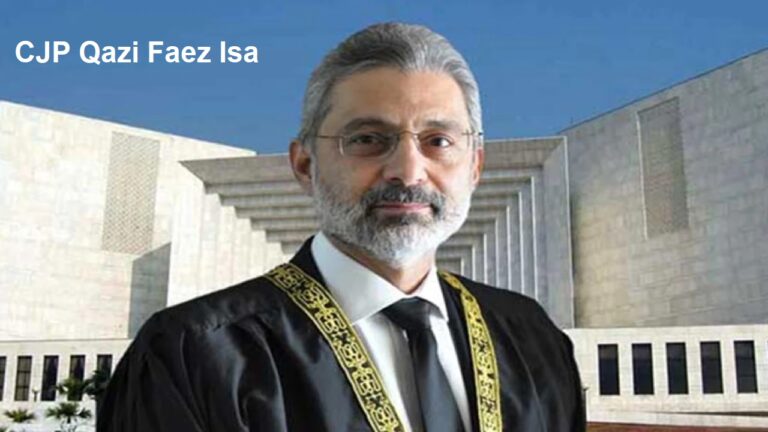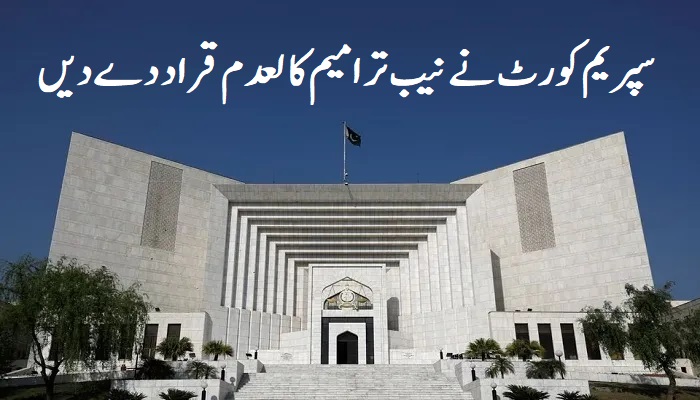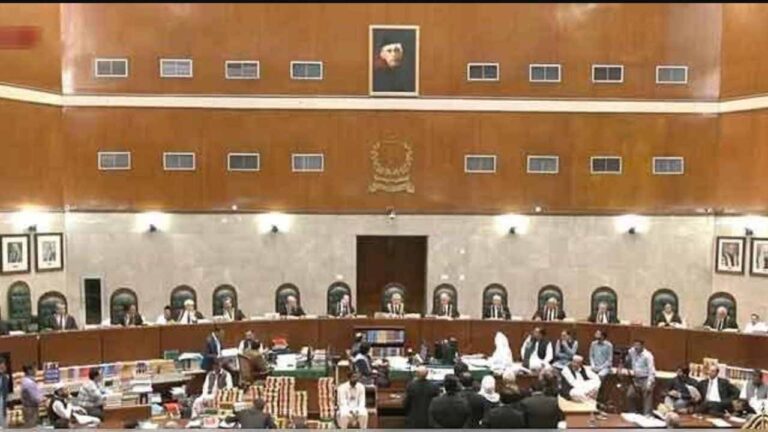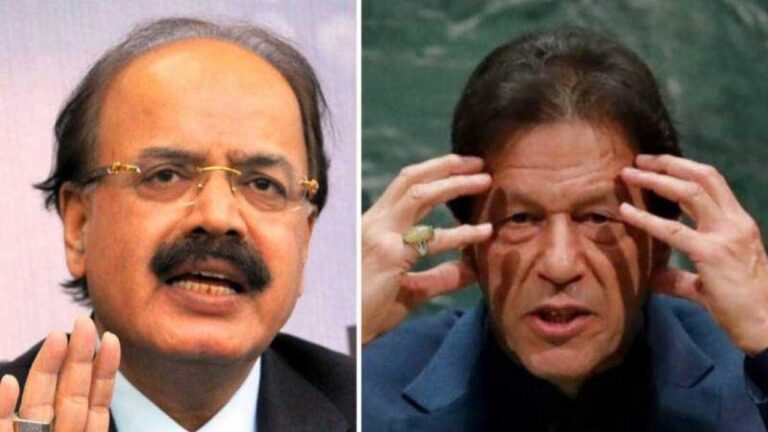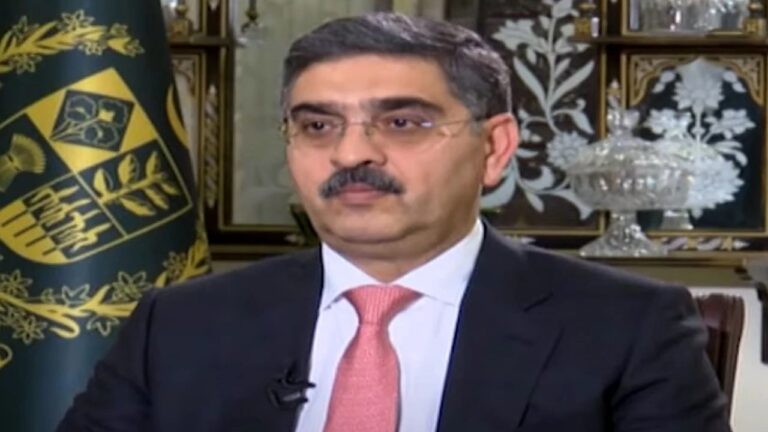CJP Umar Atta Bandial Retired, will be Remembered as one of the most Polarizing Top Judges in Pakistan
Chief Justice of Pakistan Umar Atta Bandial has retired on 15 September 2023; he faced a serious political crisis during his tenure. He will be remembered as one of the most polarizing top judges in Pakistan.
According to detractors and supporters alike, Umar Ata Bandial will be remembered as one of Pakistan’s most polarizing top judges in culture and history, whose legacy will be tarnished.
CJP Umar Atta Bandial Retired on 15 September 2023

He served as chief justice for about 20 months after taking over in February 2022 as the South Asian country faced a serious political crisis.
Through a parliamentary vote of no confidence, the then-opposition coalition, the Pakistan Democratic Movement (PDM), was attempting to topple Imran Khan’s government via the opposition coalition.
As soon as Bandial took office, he declared the then-deputy speaker’s decision to dissolve Parliament unconstitutional”.
Khan’s removal had been set as the PDM alliance moved a no-confidence motion against the government after the five-member bench headed by Bandial restored the National Assembly.
A chain of events began with Khan’s removal in April last year that continues to reverberate in Pakistani politics today. In the next 18 months, Bandial arbitrated a large number of petitions, often political, making him a deeply polarizing figure.
Khan and his party have been accused of showing leniency toward Bandial, who became a Supreme Court judge in 2014 before being elevated to the top judge last year.
Bandial has been repeatedly reprimanded by former Prime Minister Shehbaz Sharif’s Pakistan Muslim League-Nawaz party, the PTI’s biggest rival, with some leaders suggesting he join Khan’s party.
A powerful tussle ensued between Sharif’s government and the top court, which led to the government refusing to implement some court decisions and even proposing a law that curtailed the chief justice’s power.
Bandial was not preferential toward Khan or his party, according to Abuzar Salman Khan Niazi, a Lahore-based constitutional expert.
“PTI has been facing a massive state crackdown and Bandial only tried to uphold law and constitution. If he was biased towards the party and its chief, Imran Khan would not have been in jail right now,” he said.
PTI Chairman Imran Khan in Jail

Since August 5, Khan has been imprisoned in Attock city, in Pakistan’s Punjab province, for three years on corruption charges. In a bogus case “Tosha Khana” a session judge Hamayun Dilawar punished the jail to IK.
Last month, a high court suspended Khan’s conviction, but he remains in custody in the “cipher” case, an investigation over a leaked diplomatic cable that Khan Claims proves his allegations of US conspiracy with Pakistani authorities to remove him.
Top Courts Remained Divided in the Tenure
Yaser Kureshi, a South Asian Studies lecturer at Oxford University and author of Seeking Supremacy said, “The Pursuit of Judicial Power in Pakistan, Bandial took the reins of the Supreme Court when it was already deeply divided, but his actions only exacerbated those divisions.”
“He did not seem inclined towards mitigating these divisions, using his powers to form benches that included judges that appeared to align with him, and marginalising judges with whom he was known to have differences, and refusing to bring together full benches for major political cases,” Kureshi told Al Jazeera.
As a result of the fracture within the judiciary, Niazi blamed all 15 top court judges.
“These differences among the judges only harmed the judiciary, and for that, I hold all the judges responsible. They were unable to sit together and ignore their differences, and this led to the Supreme Court losing its independent space and as a watchdog of the executive,” he told Al Jazeera.
Despite Bandial’s civility and courtesy, he left much to be desired during his tenure as top judge, Niazi said.
“Under his time, there was a massive state crackdown on political workers and human rights abuses, as well as the state’s failure to implement on court’s orders. Yet he continued to show restraint. Those were extraordinary times, and he should have taken extraordinary measures as required,” he said.
Why Bandial Remembered as Polarized Judge in Pakistani Judiciary
Moiz Mirza Baig, a legal analyst, commented that Bandial leaves behind a court that is “more fractured than ever before”.
“The chief justice’s propensity to appease all sides may not have appeased anyone. While the gains from such appeasement may not be clear, what we have lost is the people’s confidence in the Supreme Court,” the Karachi-based lawyer said.
But Asad Rahim Khan, a lawyer and commentator, praised Bandial’s “determination despite being dealt an impossible hand”.
He further said, “Over the course of his tenure, he was obstructed or opposed by both the PDM and the PTI, the deep state, the bureaucracy, and a divided bench. In keeping with so many of his predecessors, he could have easily capitulated. Instead, he did his duty to Pakistan and the constitution,”
It was ruled illegal by Bandial in May that Khan had been detained for two days for allegedly inciting violence. Additionally, he announced earlier this year that Punjab and Khyber Pakhtunkhwa would hold provincial elections.
In January this year, Khan dissolved the two PTI-controlled assemblies to force the federal government into calling early elections. National and provincial elections are traditionally held in Pakistan at the same time.
The PDM government, however, failed to follow the Bandial-led bench’s orders to hold elections within 90 days of dissolution despite clear guidelines.
What Legal Experts Say about Bandial Tenure?

According to legal analyst Rida Hosain, the political executive exploited the divisions within the judiciary.
“The judiciary depends on the executive for the enforcement of its orders. But the former coalition government diminished the authority of the judiciary,” the Lahore-based analyst said.
According to lawyer Rahim Khan, Bandial’s most controversial decision was ordering the count of legislators’ votes when they went against party lines in a legislative assembly.
Punjab, the country’s most influential province, fell under the PTI government last year due to a verdict in a case about voting by dissenting legislators.
Constitutional expert Niazi agreed. “My reading is the Supreme Court rewrote the constitution in that decision which is not their job. They are meant to interpret constitution, not fill in legislative gaps,” he said.
Nevertheless, Cyril Almeida would remember Bandial for his efforts to reshape the country’s politics and interpret the law without regard to its immediate political consequences.
Bandial’s tarnished legacy is a symbol of the current political era, in which all civilian parties have contributed to the unraveling of democracy in Pakistan and the military has asserted itself more forcefully. Chief Justice of Pakstan’s List

